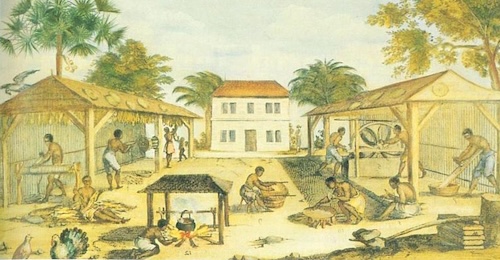Early Labor in the Colonies
When the English began settling colonies like Jamestown in the early 1600s, they needed people to work the land, especially to grow crops like tobacco. But many people in England were too poor to pay for the trip across the Atlantic. To solve this problem, colonial leaders used a system called indentured servitude. This meant a person signed a contract to work for someone in the colonies for several years in exchange for their passage, food, and shelter.
At first, this seemed like a good solution. Some servants were even promised land or money at the end of their contract. But life for indentured servants was often harsh. They worked long hours, lived in rough conditions, and had little protection if they were mistreated. Even when their contracts ended, most stayed poor and had few chances to improve their lives.
Changing Laws, Changing Labor
As tobacco farming became more profitable, the need for workers grew. Colonial leaders created the headright system, which gave land to anyone who paid for a servant’s passage. This encouraged wealthy planters to bring over more indentured servants.
But problems arose. Servants often ran away, broke contracts, or rebelled. One turning point came with the John Punch case in 1640. John Punch was an African servant who tried to escape with two European men. When they were caught, the European men received a few extra years of service, but John Punch was sentenced to a lifetime of slavery. This was one of the first legal decisions to treat Black and white laborers differently and helped set the stage for race-based slavery.
Over time, colonial laws made this distinction stronger. Some laws said that children would inherit their mother’s status, meaning children of enslaved women would also be enslaved. Other laws made slavery permanent for African people and their descendants, even if they converted to Christianity. These laws helped turn slavery into a lifelong, inherited condition, based on race.

The Shift to Slavery
By the late 1600s, fewer English people were willing to come as servants. At the same time, enslaved Africans became more available due to the growth of the transatlantic slave trade. Planters began to rely more on African slavery because enslaved people could not earn their freedom and were seen as less likely to rebel. They were also easier to identify and control due to their race.
This shift wasn’t sudden. Indentured servitude continued for a while, especially for skilled workers or as punishment for crimes. But gradually, slavery became the dominant system of labor in the colonies. Laws, land ownership, and social structures were all reshaped by this change. The move from temporary labor to permanent, race-based slavery had a lasting impact on colonial society and on the future of the United States.
